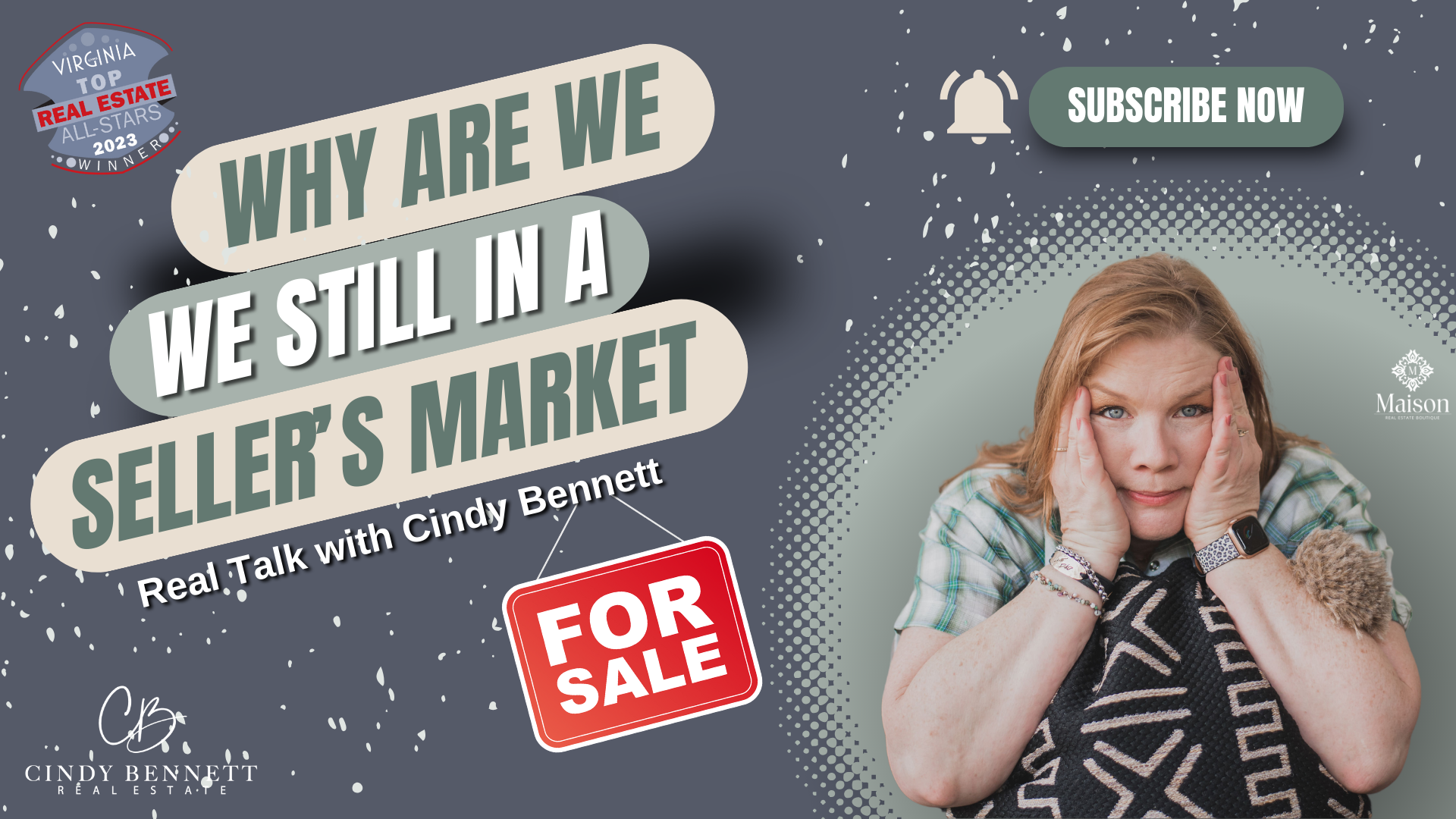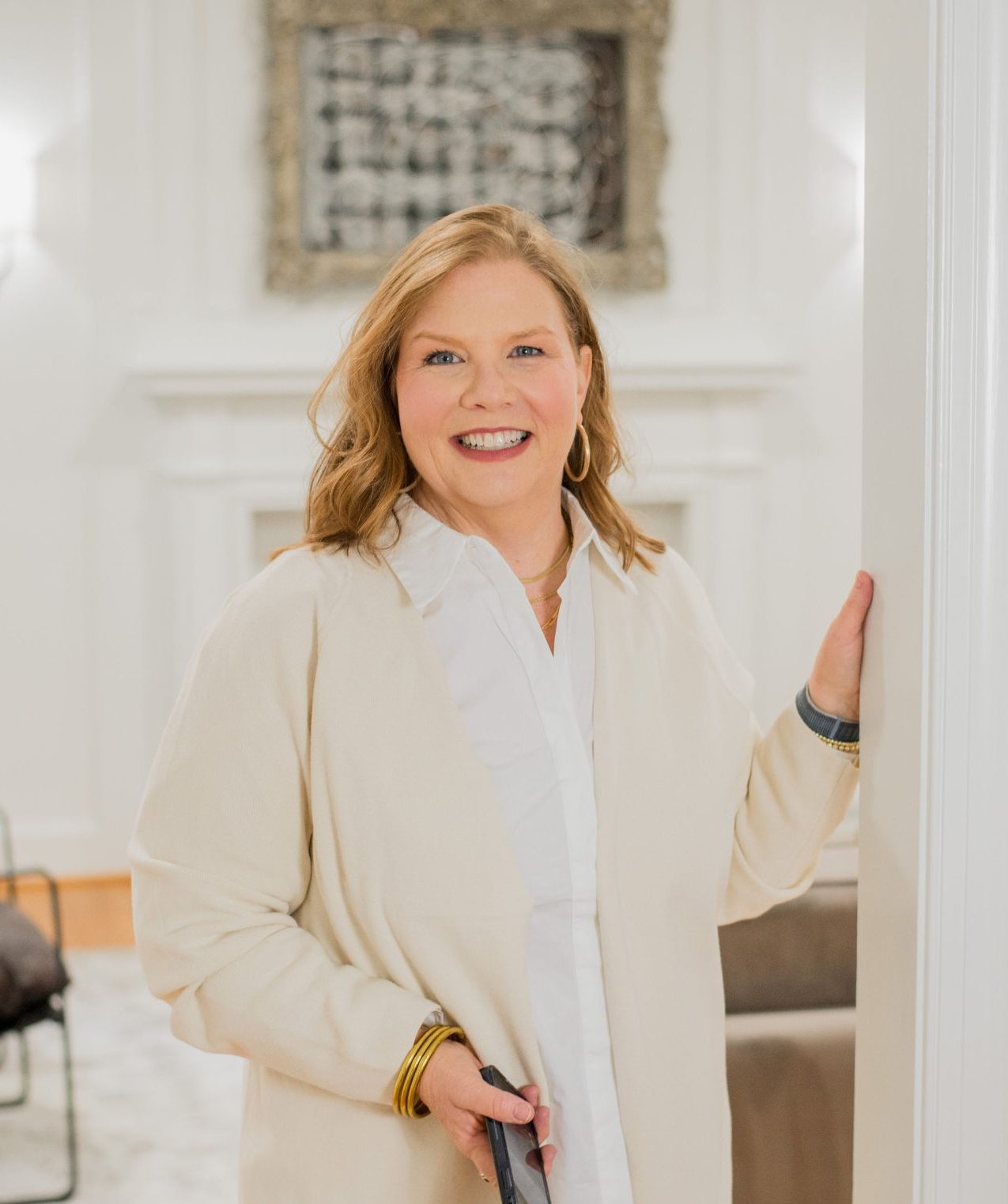Real Talk with Cindy
Keep on top with latest and exclusive updates from our blog on the Los Angeles real estate world. Cindy Bennett Real Estate posts about tips and trends for buyers, sellers, and investors every week. Whether it be about staging your property or a snapshot of the market, this is your one stop shop.

I may have mentioned before, back in the olden days before the mortgage crisis of 2007/2008, the appraisers were able to be chosen. So, maybe somebody had a specialty in the city of Richmond and that is the appraiser that everybody would call if they had a property in the city of Richmond, especially if it was a property that I don't know might be a little trickier to appraise, and the lender and or the agents were able to request a particular appraiser. That is no longer the case, because the appraisal companies, the appraisers themselves, work for the lender. The lenders have to have an unbiased opinion of the value. Somebody who is not necessarily chosen, they just get handed the name of that appraiser and when that happens, we do get a more unbiased opinion of value. But sometimes it can create a problem if an appraiser is not totally familiar with the nuances of a particular area or neighborhood. In most cases, it's fine because the data is what the data is right? But trickier appraisals can happen. And there are ways to deal with those too. So, follow along for my whole series on appraisals and get a little bit more information about what can happen, what the pitfalls are, why you want an appraisal or maybe you know that you're going to have an issue and you want to know what might happen and how to deal with those problems.
Read more
Let's talk about timing the markets. I think it's a thought that sounds really good in theory, but in practice, it's a little difficult. So obviously, we always want to sell high and buy low. I think that's kind of the idea that we all have when we are dealing with real estate. But think about the fact that that generally does not happen in the exact same market. So timing the market, I think, when you are buying not for investment, but for your primary residence, is almost impossible. Because to time the market well, you have to think about not only when you're going to buy, but when you're going to sell. And while that's easy to do or easy to think about in terms of stocks, or investments, it is a little more difficult when we're buying a home for maybe your family because if October turns into the month to sell, you have to then buy something else or have a place for your family to live. So if you're looking at buying a primary residence, I would suggest looking at that whole big picture and not worrying as much about timing the market because it will probably make more sense over time and less sense to try to target the exact buy date and sell date to make maximum profit when it's your primary residence. So let's save that for investments and for primary residence, we're going to look at it in a slightly different way. If you're thinking about buying or thinking about selling, I'd love to talk to you and help you put together a game plan that's going to give you that big picture to make it all make sense for you both for yourself your life, your lifestyle, your family and your finances.
Read more
So we've talked a lot about whether it's a buyer's or seller's market and obviously all the data shows, and anecdotally, I can attest to the fact that it is still very much a seller's market here in central Virginia, in the metro Richmond area. But why? Why are we still in a seller's market? What is going on? And is it going to change? So a lot of buyers are out there thinking, I'm gonna wait, I'm gonna sit it out until it turns back into a buyers market. And I wouldn't really recommend that and there are a couple of reasons why. And they go back to the reasons why we are still in a seller's market. So one of the reasons why we are still in a seller's market, and we have not actually been in a buyer's market since 2013, or so, is throwing back to the mortgage crisis of '06 or '07, '08. When mortgages were crazy, everything kind of went kablooey. After lenders were giving people mortgages that probably shouldn't have gotten mortgages, and people didn't really have any skin in the game, so to speak. I think the lowest amount I had a buyer, during that time period, bring to closing was about $100. I think there were some people who brought $0 to closing and that just doesn't really give you a great incentive to pay things off. You don't have anything to lose if you walk away and just can't pay your mortgage. A lot of things changed after that period and put us in a position where a lot of builders went belly up. A lot of things just shifted in the whole industry. Buyers were sidelined. It was harder to get a mortgage. There were a whole lot of reasons, but one big piece of fallout that came from that was people stopped building. We just didn't have the construction that we had had up to that point and we just haven't caught up. So there are literally not as many housing units as the market needs nationwide. Everywhere you go. Almost anywhere, there are not enough units of housing. So that means rental homes, apartments, condos, townhomes, single-family homes, all that stuff. I have also seen during the course of my career that things have gotten a little different from the perspective of buyers. I think 15 or 20 years ago, buyers were more likely to come in and buy a fixer upper. I say all the time that with Pinterest, Instagram, HGTV, and all of these things showing great transformations, my natural thought would be that people would be more open to a fixer-upper and they would see the potential more because they've seen it on TV or Instagram or whatever. And it's almost the opposite. So it's a little counterintuitive to me that with the popularity of those things that buyers tend to walk in and see just a couple of things that might just be cosmetic, or just beyond cosmetic and they will walk out of a home. So the deals to be had in this market generally are the real fixer-uppers because a lot of people are just completely, no thank you, on those. They won't even go or they walk in and turn around and walk out. So there are a few reasons why we are still in a seller's market, but there are always deals to be had. If you're thinking of buying, there are always opportunities out there. So don't sit on the sidelines because you may be sitting for a long time. But if you have any questions about buying or thinking about a game plan to get you into a home and you think it's maybe unattainable, I'd love to talk to you because I bet you can actually make it happen.
Read more
It's January, and everybody's making their list of things that they want to accomplish in 2024 and I'm right there with you. But if one of the things that you want to do this year or hope to do this year is buy a home, one of the questions that you probably have is 2024 gonna be better to buy than 2023 was, because it was not that easy last year to buy a house, especially if it was your first home. So here are my predictions for what 2024 is going to look like if you are a homebuyer. We've already seen interest rates drop and that is fantastic because last year they inched up and inched up and inched up to a point where for a lot of people, it was just too expensive to buy a house. But we've already seen them come down and the Federal Reserve has already said that they're going to reduce rates a few times over the course of this year. So I think that we have some good predictions that rates are going to come down to a more attainable, not 3%, but a more attainable spot. So we are unlikely to see those 3%, sub 3%, rates anytime, possibly ever. So if you're waiting for rates to drop back to three, you're going to be waiting a really long time, most likely. And you probably don't want to do that if you're seriously thinking about buying. But as rates come down, it will be more attainable payment wise. But what I want you to keep in mind is if you've been waiting on the sidelines thinking maybe I'm gonna wait to buy a house, remember that right now we're in January, the market is tight with inventory, we still don't have a ton of homes out there and as rates go down, more buyers are going to be entering the market. So if you're thinking you'd like to buy this year, maybe you're thinking I want to buy in spring, you're thinking sometime this year I want to buy I'm going to wait until spring when more homes are on the market. Start looking now because there is less competition out there now in January and February then there will be trust me in March, April, May. So if you're thinking and you're able to buy now with the rates as they are, get out there now, start identifying what you like, what you don't like, and figure out when you can actually move forward because this year is shaping up to definitely have lower rates than last year. Maybe a little bit more inventory though it might be the same and we are gonna see a lot of competition. So get your head in the game. Give me a call. Let's chat. I'll put you in touch with a lender and let's make a game plan to get you in a home in 2024.
Read more
Who is the appraiser anyway? How did they get picked? How did they come into the transaction? What did they know? One of the most commonly asked questions about an appraiser or the appraisal process, especially if it's not going the way everyone wants it to go is," Who the heck is this person anyhow?". Appraisers are not just real estate agents. So in terms of "just" a real estate agent, they actually go through a lot of the same or similar licensing process, but they also have to apprentice under another appraiser for a period of time. So, they have to really not only do their homework, but take a lot of exams, and they are constantly having to update their information and their knowledge to make sure that they are doing their job correctly. They have a lot of responsibility, and nobody picks them. So back in the olden days, it used to be that if an appraiser worked in a particular area, the lender and or the agents can say, Hey, we should have SO and SO appraised this property, they know the neighborhood, maybe I've known them for 10 years, they live in the neighborhood, or they work a lot in this county or municipality. After the mortgage crisis of '07/'08, the consumer protections that were put into place after that made it so those appraisers were chosen almost by a lottery. It's like their name just gets spit out as this is who does it. Because they want to make sure that it is a totally unbiased opinion of value. Follow along to the rest of my series on appraisals and get all the information about who they work for, why they do what they do and how it affects you. When you are in the midst of a real estate transaction.
Read more
If you're thinking of buying or selling a home, one of the things that's going to affect you on either side is the appraisal. So I'm going to do a short chapter, series, number of episodes on appraisals and tackle some of those frequently, commonly asked questions or situations that come up in the appraisal process. First things first, what is an appraisal? An appraisal really is an opinion of value. It is the most objective opinion of value because it is made by an uninterested party, right? It's not what the seller thinks the property is worth. It's not what the buyer thinks the property is worth. Nor is it what the agent thinks the property is worth. It is really an opinion of value by a an educated appraiser who only does appraisals. They are not involved in the transaction and it's based on the comparable sales around the property. So, you cannot use a property that's 50 miles away. You cannot use a property that is unlike the subject property. But it is an opinion of value, so they're not always going to be exactly the same, but they have to use information to back them. If you're curious about how appraisals work, what goes into the appraisal process and how it can affect you. If you're a buyer or seller follow along for the whole series and I'm going to answer all the questions you can think of about appraisals.
Read more
So you're thinking about buying a house, or a condo, or a townhouse, or something? How do you decide on what the right type of home to purchase is based on your budget and your lifestyle? First of all, a lot of people, with lower price ranges particularly, often think a condo or a townhouse is going to solve all their problems, because usually, they're a little less expensive, in most cases than a single-family home. Don't forget that one of the things you have to include, and that your lender is going to look at, in your qualifications number, is the homeowners association, the condo association, whatever they want to call it, that community that you're joining is going to have a fee every month. Sometimes it's going to have special assessments, sometimes those fees can go up. But always, you're going to want to make sure that the fee that is there now is going to work with your budget and the payment that you're going to end up with, and that it's going to cover enough to make you feel comfortable spending that money. The main difference between a townhouse and a condo is the type of ownership. Basically, in a condo, you own what's inside the four walls. Often people think of condos as units in a building like apartments. But, sometimes townhome-looking things can be condos as well. But again, you only own what's inside those four walls. As opposed to having any land or garden yard, whatever that is yours. Obviously with a single-family home, unless you're in a maintenance-free community, all of that exterior maintenance is going to be yours with a townhouse or a condo. Often, that fee is going to cover things like the landscaping and the outdoor areas. Usually, if there's a pool or other amenities, tennis courts, that sort of thing, it's going to cover those as well. But often, it will also cover siding, the roof, the exterior items like doors, and things like that. But those are going to be on a schedule. So there are a lot of moving parts. When you start looking at those associations, what they cover, and how they're covered, you might be thinking, well, I'm not going to pay $250 a month because I can buy a house and then I'll just mow my own grass. But, you can usually pretty much assume that you're going to end up somehow spending at least $250 a month on your single-family home unless you are kicking some maintenance items down the road a little piece. So while the money is important, often the lifestyle is even more important. More maintenance-free options, like townhomes and condos, I think are fantastic for a lock-it-and-leave-it mentality. If you travel a lot for work or you travel a lot for pleasure, or you just don't have time to do yard work or it's just not something you want to do. You don't want to have to worry about getting quotes on a new roof. You want somebody else to deal with that. Or maybe you want the amenities that come with a townhome, a maintenance-free community, or a condo. Those are really lifestyle differences instead of just simple financial ones. Make sure that you read those documents well. You do have a three-day right of rescission, if you can't live with the way that they take care of the property, what you're paying for, or if it looks like their finances are shaky. You want to make sure that you're comfortable not only with the amount of money, but also what you're getting for the amount of money you're paying. A condo or townhome may be for you if you want to have a little bit more of a hands-off approach to maintenance. Sometimes it's worth it and sometimes it's not. If you're thinking about buying I'd love to talk through it with you and help you determine what the best deal for you is for both your budget and your lifestyle to make sure that the home that you buy is one that you love to live in. Give me a call send me a message shoot me an email and let's get started.
Read more
If you're thinking about putting your home on the market, yes, even in the seller's market, there are always things that you can do to make it show a little bit better and make it a little bit more appealing to a larger pool of buyers, and that's always going to help you in the long run. One of the easiest things or the 'more easier' thing to DIY is going to be your outdoor space. Especially as we head into the fall in winter a lot of the competition is not going to be doing a lot to their outdoor space because everything starts to look gray and bed and cold and brown. Today's buyers place a premium on well-kept and well-built-out outdoor space. So especially heading into the fall and winter, it is a great way to put your listing ahead of the pack by making your outdoor space more appealing and approachable. In fact, in 2020, 26% of buyers that were surveyed, said that that outdoor space made a huge difference in them wanting to buy a particular home over another. This can look as simple as putting nicer furniture outside or just staging an area to show that it could be a great firepit or relaxing area in any season. If you're wondering about ways to help make your outdoor space a little bit more appealing, I'd love to come take a look at your home if you're in the Richmond area. Give you an idea of what you can do to make your outdoor space a little bit more appealing to potential buyers make your indoor space a little more appealing to potential buyers and help get you the most return on your investment in your home. Send me a message give me a call or shoot me an email and let's set up a time for me to come take a look at your space and help give you that list of things that you can do to make it a little bit more of a wow in the sometimes a little gloomy or fall in winter markets.
Read more
Do you even need a realtor to set up a search for you if you're just starting your search process? There are so many search portals out there that often when people get started on their search, they start on the internet, they start looking at all of those portals. And we'll say to a realtor, I don't need you to set up a search, I already have access to all this other stuff. So if you're thinking about looking for a home, or you're starting to seriously look for a home, and your agent says, hey, I want to set you up with a search portal, there are a few reasons why you might want to do that. First of all, the timeliness with which that information gets syndicated out to all those other sites, sometimes it can take two days. And in two days, in this market, you may have missed the boat on that home that you could have fallen in love with. Secondly, it's a great little reminder for your agent. If I am looking for five different buyers and I have searches set up, it's going to send me a copy of that too. So I am also able to get that little tap on the shoulder from the multiple listing service, letting me know hey, there is a house that you know, Bob and Mary Smith might love. It's also a great way to communicate with your agent because you can put notes on there. So as we're sometimes learning what you like and what you don't like, if you're putting notes on there that say things like I love this location, but I hate this kitchen, then that helps me if I'm your agent learn a little bit better about what you like. So always don't get too specific in those things, but it really does shorten that learning curve a little bit and help make your home search a little bit more efficient. So if your agent says, "Let me set you up with a search portal", don't just wave it off. Yes, it's one more email. But hopefully it won't take very long before you'll be able to find the home that you love. It'll be easier, shorten that learning curve, and make sure that you're knowing exactly what comes on the market exactly when it comes on the market and not two days later. If you have any questions about the home buying process, the home searching process, I'd love to talk to you more, give me a call, send me an email or shoot me a message and let's chat.
Read more
Every buyer's journey is different, but I want to share this one with everyone to show what a difference small changes make. Ready to start your buyer's journey? Reach out to me on Instagram @ CindyBennettRealEstate or via my website cindybennett.net.
Read more


